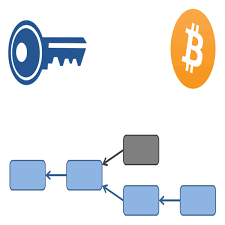What Is the National Reverse Mortgage Lenders Association (NRMLA)?
The National Reverse Mortgage Lenders Association (NRMLA) is a professional organization that serves as an educational resource and policy advocate for members within the reverse mortgage industry. NRMLA created the Certified Reverse Mortgage Professional (CRMP) designation, which recognizes professionals who have achieved a required level of experience and training.1
KEY TAKEAWAYS
- The National Reverse Mortgage Lenders Association (NRMLA) is a trade group serving loan originators, servicers, title companies, and other professionals affiliated with reverse mortgages.
- The organization provides educational resources for consumers and professionals, which includes an electronic newsletter and its flagship Reverse Mortgage magazine.2
- NRMLA created the Certified Reverse Mortgage Professional (CRMP) designation for lending professionals and other industry professionals with a minimum level of experience and continuing education credits.1
How NRMLA Works
NRMLA was founded in 1997 with the goal of providing “an educational resource, policy advocate and public affairs center” for lenders and other professionals who work with reverse mortgages.3
Its members include lenders, reverse mortgage servicers, attorneys, title companies, and appraisal firms. The Washington, D.C.-based group claims more than 240 member companies, which originate and service more than 90% of all reverse mortgages insured by the Federal Housing Administration (FHA) and 100% of proprietary reverse mortgages (also known as jumbo reverse mortgages) in the United States.4
NRMLA has several committees that are focused on specific issues within the reverse mortgage industry, including a Diversity, Equity, and Inclusion Committee, an Education Committee, an Ethics Committee, and a Risk and Compliance Committee.5
Education
The association educates both consumers and practitioners, offering a variety of digital content on its website. These include a series of consumer guides aimed at borrowers and family members who are interested in learning how reverse mortgages work.6
In addition, the trade group distributes a weekly electronic newsletter for industry professionals called Weekly Report.2 It also publishes Reverse Mortgage magazine, which is available in print and digital editions six times per year. The magazine covers a variety of management and marketing topics as well as industry trends and borrower profiles. The newsletter and magazine each have a circulation of roughly 2,500.4
Professional Standards
Aside from the association’s role as an educator about reverse mortgages, it also aims to uphold the reputation of the industry by enforcing a Code of Ethics and Professional Responsibility. Members are required to sign a copy of this code of ethics when joining NRMLA or renewing their membership. Members can submit an ethics complaint against another member if they notice inappropriate behavior or questionable advertising, according to the group’s website.7
NRMLA also provides continuing education opportunities for lenders and servicers and created the Certified Reverse Mortgage Professional (CRMP) designation to identify professionals with a minimum level of experience and industry education.1
Public Policy
Another role of NRMLA is to advocate for government policies on behalf of its members. In addition to weighing in on potential federal bills and regulations, the association tracks legislation at the state level having to do with reverse mortgages.8
Certified Reverse Mortgage Professional (CRMP)
NRMLA created the CRMP designation for lenders and other industry professionals with a minimum level of experience and education. According to the organization, “individuals who earn the CRMP have demonstrated their knowledge and competency in reverse mortgage lending and are dedicated to upholding high standards of ethical and professional practices.”9
The requirements for obtaining the CRMP credential include:
- Having at least three years of experience in reverse mortgage loan origination or have personally closed at least 50 reverse mortgages
- Having at least three years of experience in underwriting, processing, operations, training, title and closing services, appraising, counseling, wholesale sales, or loan servicing if they do not originate loans
- Completing 12 credits of continuing education by attending NRMLA conferences or completing online courses approved by the Independent Certification Committee (ICC)
- Submitting a letter of recommendation written by a senior manager or industry colleague in senior management
- Completing a two-hour ethics workshop
- Having a valid mortgage loan originator license (if applicable)
- Completing a background check10
49,207
The number of home equity conversion mortgage (HECM) loans issued in fiscal year 202111
The Reverse Mortgage Industry
A reverse mortgage is a type of loan that allows older people to borrow against their home equity in the form of a lump sum payment, regular monthly payments, or a line of credit that they can draw from as needed. The title of the home stays in the borrower’s name, and—unlike with traditional mortgages and home equity loans—the debt is not paid back until the borrower sells the home, moves out, or dies.
Interest and fees are added to the loan over time. Therefore, the balance goes up, not down. The interest on these mortgages cannot be deducted on your income tax returns until it’s paid.12
One common type of reverse mortgage is an FHA-insured product called a home equity conversion mortgage (HECM).13 These are available to homeowners age 62 or older and marketed through FHA-approved lenders.14 According to NRMLA, there were 49,207 HECM loans originated in fiscal year (FY) 2021, significantly down from its peak of 114,692 in FY 2009.11
Other versions include proprietary reverse mortgages that are not federally insured. For higher-priced homes, these often provide larger loan amounts than an HECM.12
Finally, some state and local governments offer single-purpose reverse mortgages, which can only be used for a specific need outlined by the issuer. For example, the funds may be used to make renovations to the home or pay off property taxes. Single-purpose loans are generally the least expensive of the three types.12
What does the National Reverse Mortgage Lenders Association (NRMLA) do?
The National Reverse Mortgage Lenders Association (NRMLA) is a national trade organization composed of loan originators and other industry workers. The group provides educational resources for consumers and workers and offers professional development opportunities for its members. It also lobbies on legislative issues at the federal and state levels.
How big is the reverse mortgage industry?
According to NRMLA, there were 49,207 HECM loans originated in fiscal year (FY) 2021.11 There are also less common versions of a reverse mortgage, including state and local loans and proprietary mortgages that are not federally insured.15
What is Certified Reverse Mortgage Professional (CRMP)?
Certified Reverse Mortgage Professional (CRMP) is a designation created by NRMLA that is given to lenders and other industry professionals with a minimum level of experience and education. To qualify for the label, you must, among other requirements, have at least three years of relevant work experience, complete 12 credits of continuing education, submit a letter or recommendation from a senior manager, and undergo a background check.





